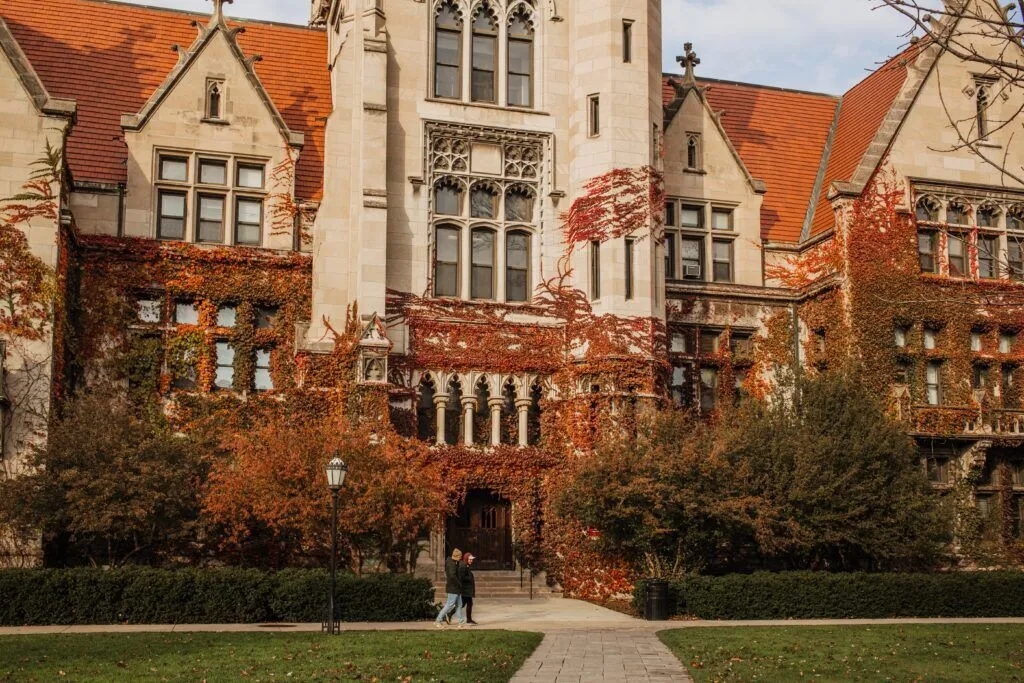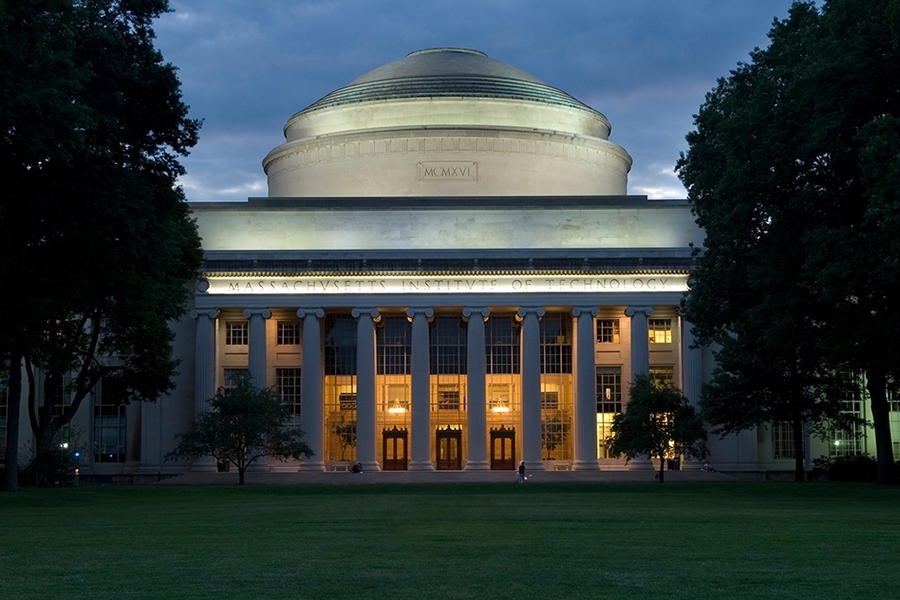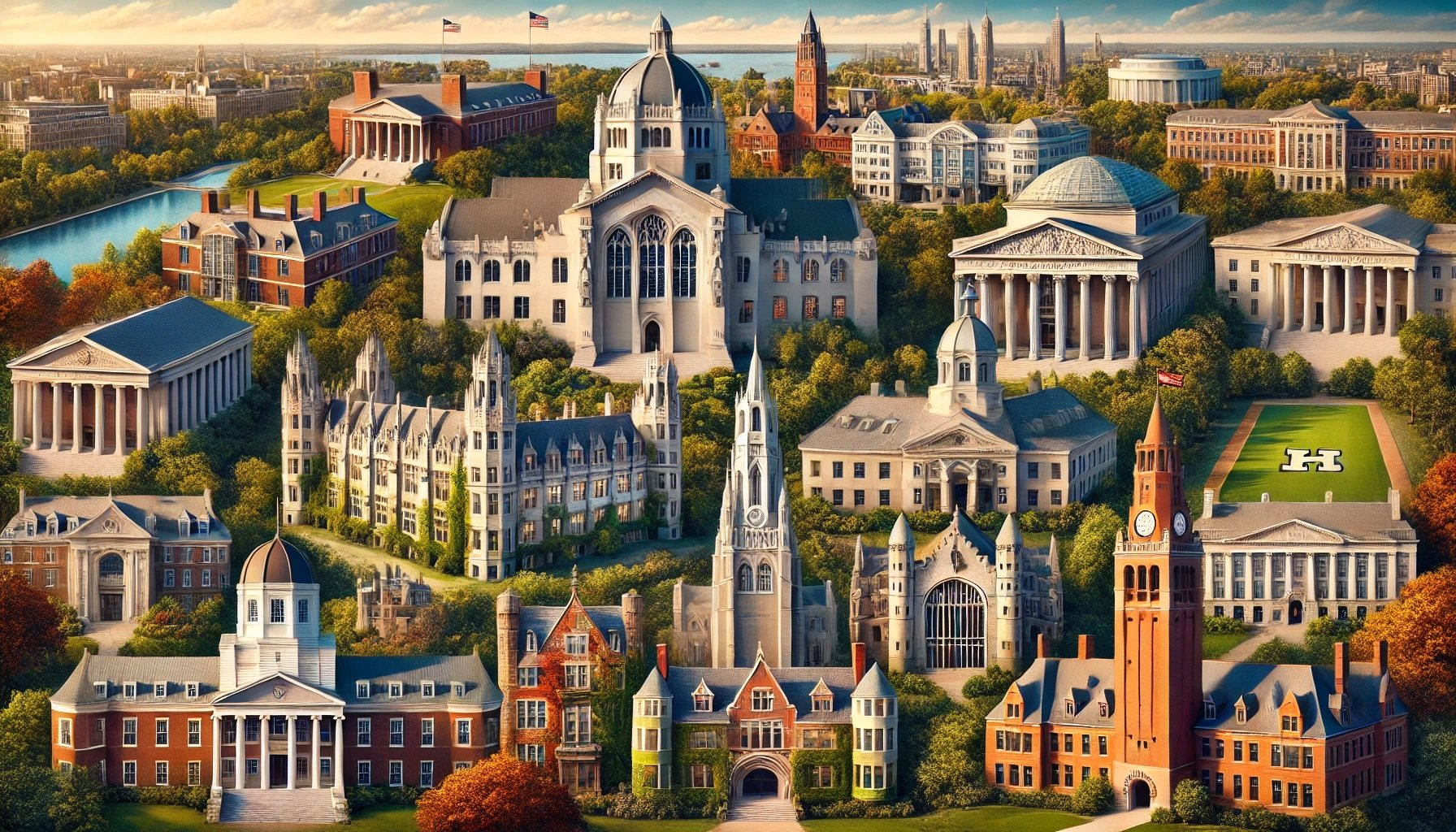How the University of Chicago Shaped Modern Academia?

The University of Chicago stands as one of the most influential institutions in the world when it comes to shaping modern academia. Founded in 1890, this prestigious university has revolutionized research, teaching, and scholarship across numerous disciplines. From economics to sociology, law to literature, the University of Chicago has played a pivotal role in the development of modern intellectual thought and academic practice.
In this article, we explore how the University of Chicago has contributed to the transformation of higher education and why it continues to be a powerhouse of intellectual innovation.
1. A Legacy of Intellectual Rigor and Inquiry
At the heart of the University of Chicago’s influence in modern academia is its unwavering commitment to intellectual rigor and the pursuit of academic excellence. The university has long been associated with a distinct approach to education that emphasizes critical thinking, interdisciplinary collaboration, and the pursuit of truth. This tradition is embodied in the famous Chicago School of Thought, a school of intellectual rigor that has had a profound impact on fields ranging from economics to political theory.
The University of Chicago has consistently prioritized in-depth inquiry, fostering an environment where students and scholars are encouraged to challenge prevailing ideas, ask difficult questions, and engage in meaningful debate. This intellectual independence is a hallmark of the university and has shaped how higher education is approached across the globe.
2. Pioneering Contributions to Economics: The Chicago School
One of the most profound impacts the University of Chicago has had on modern academia is through its groundbreaking work in economics, particularly through the development of the Chicago School of Economics. Scholars such as Milton Friedman, George Stigler, and Gary Becker have profoundly shaped economic thought and policy over the last century.
The Chicago School of Economics is known for its emphasis on free-market principles, empirical analysis, and individual choice. These ideas have had a lasting influence on economic policies worldwide, particularly in shaping conservative economic strategies, deregulation, and the promotion of globalization.
Friedman, a key figure in the Chicago School, was instrumental in reshaping economic policy, promoting ideas like monetarism, and winning a Nobel Prize for his work on the relationship between inflation and monetary policy. This school of thought continues to shape not only academic economics but also the real-world practices of governments and businesses around the world.
3. Revolutionizing Social Sciences: The Chicago School of Sociology
In addition to its contributions to economics, the University of Chicago has also made an indelible mark on the social sciences, particularly sociology. The Chicago School of Sociology is famous for its emphasis on urban sociology, symbolic interactionism, and the study of social behavior.
Scholars like Robert Park, Erving Goffman, and George Herbert Mead helped develop foundational sociological theories that continue to influence research today. Their work focused on understanding the social dynamics within cities, the role of individual identity in society, and how social institutions function. These contributions have had far-reaching implications in fields such as psychology, anthropology, political science, and cultural studies.
The University of Chicago’s commitment to fieldwork and empirical data collection in understanding social phenomena marked a significant departure from more theoretical approaches to sociology, placing a strong emphasis on direct engagement with the realities of the social world.
4. Academic Freedom and the Chicago Approach to Teaching
The University of Chicago’s approach to teaching and academic freedom has set it apart from many other institutions. The university is famous for its Core Curriculum, which offers a broad, interdisciplinary education in the humanities, social sciences, and natural sciences. The curriculum challenges students to think critically across disciplines and develop the intellectual skills necessary to tackle complex problems.
Furthermore, the University of Chicago is a strong advocate for academic freedom, empowering both students and faculty to pursue research without external interference. This commitment to freedom of inquiry has allowed for the exploration of unconventional ideas and the development of innovative theories across various academic fields.
In particular, the university’s graduate programs encourage independent research, making it a highly sought-after destination for doctoral students and scholars looking to make a lasting impact in their respective fields.
5. A Center for Innovation in the Humanities: The Chicago School of Literary Criticism
In the realm of literary criticism, the University of Chicago has played a transformative role in reshaping how texts and cultures are analyzed. The Chicago School of Literary Criticism has had a profound influence on the development of critical theory and the study of literature.
Prominent scholars such as I.A. Richards, M.H. Abrams, and Wayne Booth helped to develop new approaches to understanding the role of the reader in interpreting texts, focusing on the psychology of reading, narrative theory, and the construction of meaning in literature. Their work continues to shape how literature is taught and analyzed in universities around the world.
The University of Chicago is also known for its strong interdisciplinary approach to literary studies, often blending elements of history, philosophy, and sociology with literary analysis. This has encouraged scholars to think beyond traditional boundaries and examine texts in their broader cultural and historical context.
6. The University of Chicago Press: A Leading Publisher of Scholarly Works
The University of Chicago Press is one of the most influential academic publishers in the world, contributing significantly to the global scholarly community. Founded in 1891, the press has published groundbreaking research, seminal books, and academic journals across all fields of study.
Its publications have helped disseminate new knowledge, shape academic discourse, and promote interdisciplinary scholarship. The Chicago Manual of Style, for example, is a widely used guide for academic writing and citation practices worldwide.
The press’s role in academic publishing has made the University of Chicago an integral part of the global academic ecosystem, ensuring that its ideas reach scholars, policymakers, and the public alike.
7. Interdisciplinary Collaboration and the Legacy of Modern Academia
The University of Chicago has always emphasized the value of interdisciplinary collaboration, bringing together scholars from diverse fields to tackle complex societal challenges. Its research institutes and think tanks, such as the Institute for Advanced Study and the Chicago Urban Lab, provide a platform for scholars to collaborate across disciplinary boundaries and engage in cutting-edge research.
This commitment to interdisciplinary inquiry has allowed the university to lead the way in exploring issues like climate change, public health, urban development, and global policy. It has also paved the way for other universities to adopt a more integrated approach to research, encouraging scholars to explore issues from multiple perspectives and find innovative solutions to global problems.
Conclusion: The University of Chicago’s Enduring Influence on Modern Academia
The University of Chicago has played a pivotal role in shaping modern academia, both in the United States and globally. Through its groundbreaking contributions to economics, sociology, literature, and interdisciplinary studies, the university has set the stage for how we think about and approach knowledge across a variety of disciplines.
Its commitment to academic freedom, intellectual rigor, and innovative research continues to influence generations of scholars, making the University of Chicago a driving force in shaping the future of higher education.
As the university continues to lead in areas such as urban studies, law, public policy, and science, it remains one of the most important institutions in the world for academic inquiry and research. Scholars looking to make a lasting impact in their fields would do well to follow the example set by the University of Chicago, where intellectual curiosity and rigorous scholarship are always at the forefront of academic discovery.




